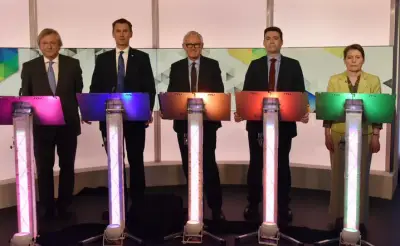Anybody who hasn’t been on holiday on Mars for the past six months knows that the future of the NHS is one of the hottest political topics ahead of Thursday’s General Election. The Conservatives and Liberal Democrats have both pledged, albeit with different fine print, to fill the £8 billion per year funding gap identified by Simon Stevens, the Chief Executive of NHS England. Labour has promised to put an end to the Health Service’s ‘stealth privatisation’. UKIP and the Green Party have also provided their own unique takes on funding and the role of independent providers.
The NHS has been a key election issue ever since the service was founded on 5th July 1948. In recent years, the health debate has expanded to include other important topics. Subjects that were considered taboo, or were simply ignored, are now receiving greater prominence in party manifestos and public debates. This year, the Liberal Democrats have placed securing parity of mental health care firmly at the heart of their policy agenda. Social care, particularly the funding of care for older people, became a controversial election issue in 2010 and remains a key debating point today.
The broadening out of the health debate beyond the traditional NHS subjects, and especially into the wider health and social care debate is, of course, good news. All the parties vying for our votes know that, with an ageing population, the issue of care for the elderly is one worth their time. Similarly, with greater awareness that one in four people will experience mental health issues at some point in their life, the parties know that a large proportion of the electorate cares about mental health.
Yet there is a huge group of people for whom health and social care issues are of absolutely vital importance, but whose voice is rarely heard and who the political parties appear to have little interest in. One and a half million people in the UK live with a learning disability, yet during the Daily Politics Health Debate, they received only one fleeting mention.
Why is it that the needs of people living with learning disabilities are not higher on the political agenda? Learning Disability charity Dimensions carried out polling of 100 MPs in the lead up to the General Election in an effort to find out, and the results make for worrying reading. 31 percent of those polled said they do not see learning disability as a national election issue. Shockingly, 60 percent said they do not believe that people with learning disabilities can be supported into paid and productive employment. In an environment such as this, it is hardly surprising that only one in three adults with a learning disability vote.
However, there are small signs of improvement. The Hear My Voice campaign has done a lot to raise awareness amongst politicians of the need to engage with the learning disability community, and has played a key role in encouraging all the leading political parties to produce easy read manifestos. Charities, advocates, provider organisations and people living with learning disabilities themselves are joining together to maintain the pressure on our political representatives to ensure they are heard. Perhaps, if this pressure is maintained, come the next election those manifestos will include meaningful learning disability commitments and the next Health Debate will see this issue receive the attention that one and a half million people deserve.




